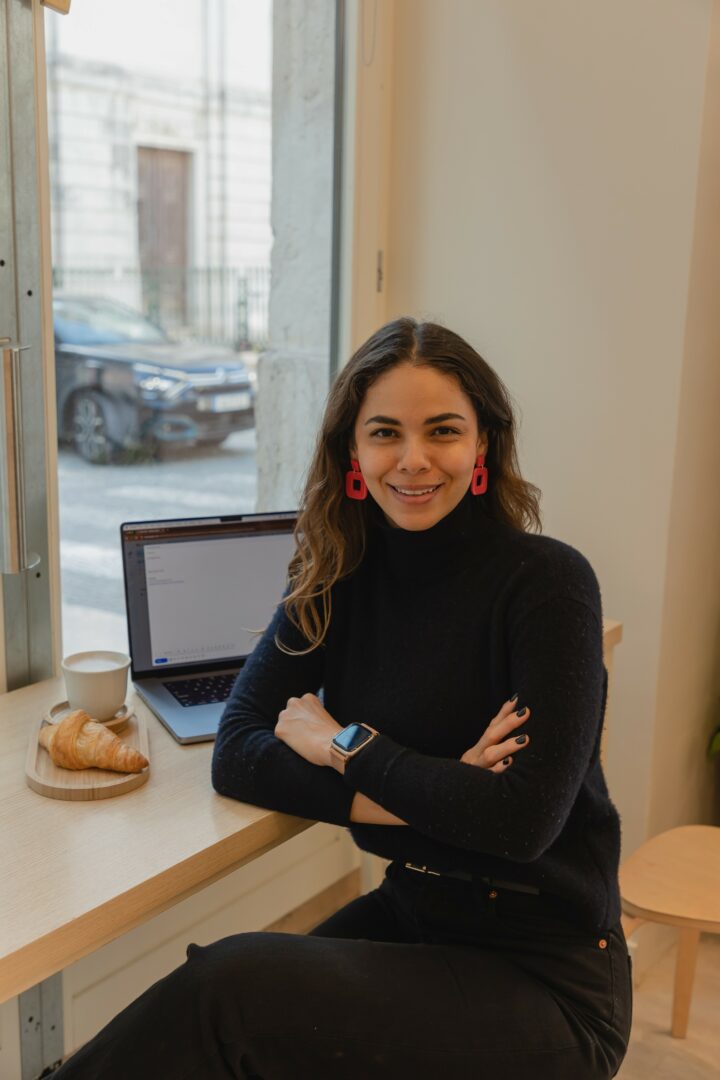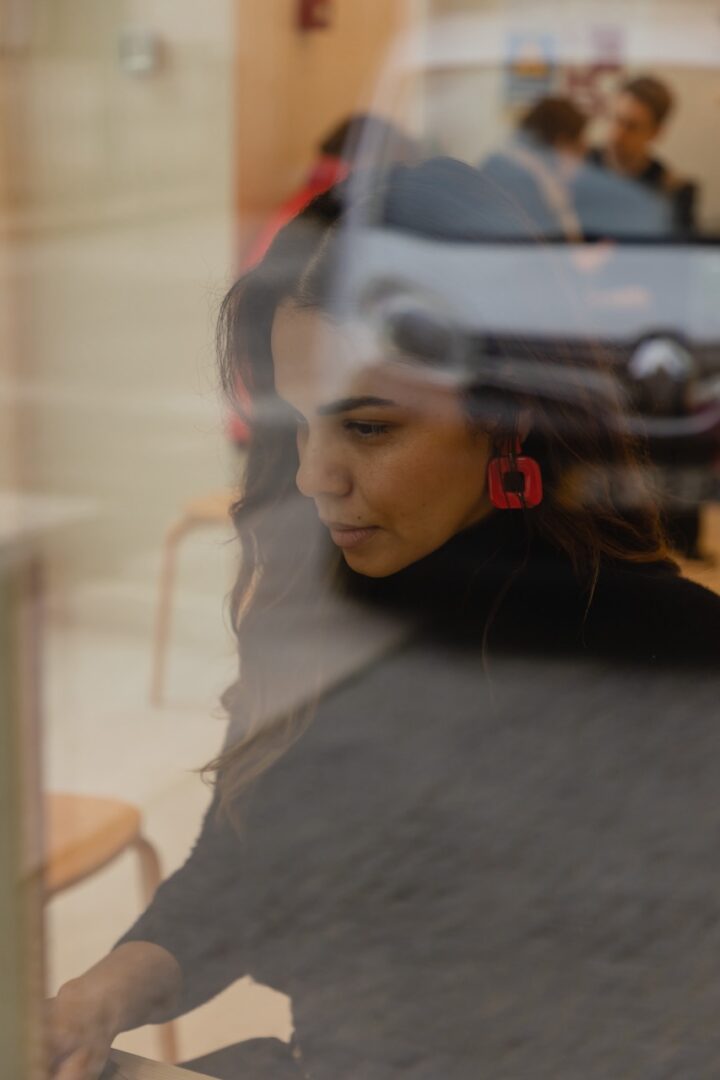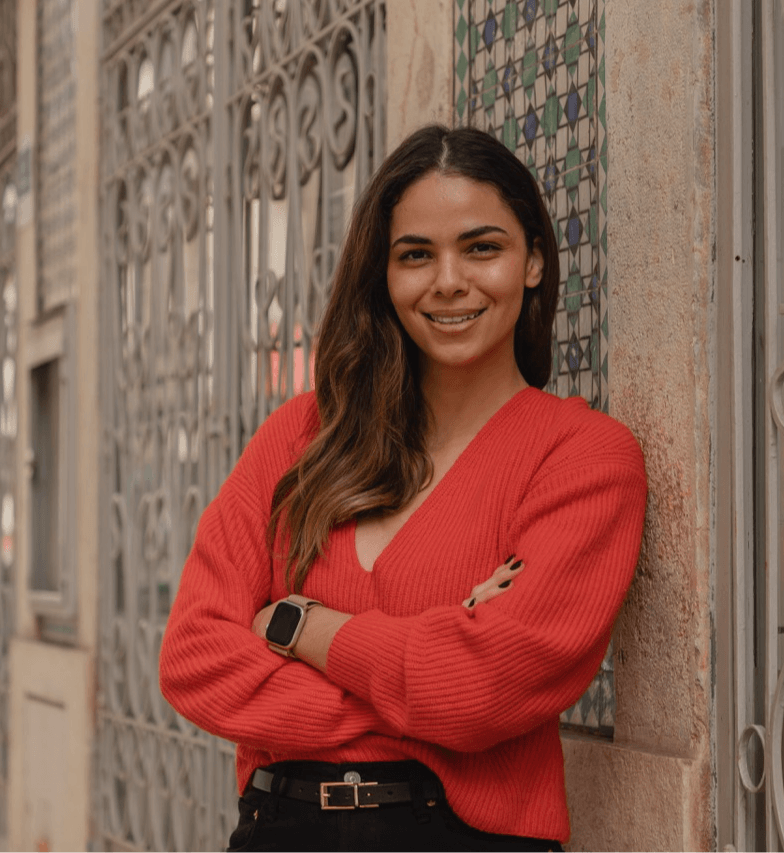We recently had the chance to connect with Santana Inniss and have shared our conversation below.
Hi Santana, thank you so much for joining us today. We’re thrilled to learn more about your journey, values and what you are currently working on. Let’s start with an ice breaker: What are you being called to do now, that you may have been afraid of before?
I’m being called to ask for money.
For years, I operated The Glow Initiative (Glowi) as an all-volunteer, grassroots initiative to bring professional coaching to women in need. It felt great. But I started to feel a quiet voice telling me that it couldn’t continue that way. And that was scary.
The fear isn’t about whether this work is valuable. I know it is. 100% of respondents report sustained transformation. Nonprofit leaders tell us we’ve made their teams stronger, more grounded, better equipped to serve. The impact is undeniable.
But taking the path of most resistance is difficult; integrity has its price. I’m walking a path of triple taboo: daring to talk about money openly, daring to push back against the nonprofit sector’s expectation of martyrdom, and daring to push back against a venture capital sector that lacks vision regarding social impact enterprises.
Here’s what I’ve learned: when you give everything away and exhaust yourself in the process, you can only serve as many people as your own capacity allows. And those returns are diminishing because you cannot pour from an empty cup. When you build something sustainable—where there’s space for all parties to be well—you can serve thousands.
So now I’m happily taking the path of most resistance. I’ve structured Glowi in a way that rejects the false choice between impact and sustainability—refusing to be either a traditional nonprofit that glorifies extraction or a for-profit that prioritizes revenue maximalism over mission.
It’s deeply uncomfortable because I’m rejecting the entire framework the sector is built on. I’m saying: “I’ve done all I can do on my own, and I deserve to sustain myself while doing this work. Coaches deserve the same. We have to forge new frameworks, ask difficult questions, and say no to things that don’t align.”
It’s still scary sometimes. I get glazed-over looks and unsolicited advice about how to get back in line with the status quo.
But the impact is the driver here. And so I’m answering the call to fundraise, to build in public by speaking openly about money, to innovate in ways that create value for all parties.
And when I’m scared, I say hello to my fear, and then do the thing anyway.
Can you briefly introduce yourself and share what makes you or your brand unique?
I’m Santana Inniss, founder of The Glow Initiative (Glowi)—on a mission to end barriers in access to professional coaching for women in need and the nonprofits who serve them.
I’m an Afro-Latina, first-generation American who grew up in poverty and spent my career breaking down barriers—first for myself, now for others. After nearly a decade working in/for the nonprofit sector then becoming an ICF Master Certified Professional Coach, I kept witnessing the same cruel irony: the women who could benefit most from coaching were systematically priced out. At $272 per session on average, transformation was reserved for those who could already afford it.
So I started Glowi to fix that.
What makes us unique: We’ve structured Glowi as both a Public Benefit LLC and a 501(c)(3) nonprofit—explicitly designed to be non-extractive. We deliver professional coaching to nonprofits at up to 75% below market rates, free of charge when grant funding allows, while offering stipends to coaches who need financial support. It’s a model that rejects the false choice between impact and sustainability.
We handle everything—matching, program management, impact reporting—so nonprofits experience zero administrative burden. They just show up for the transformation.
We’ve served 323 women across six nonprofit partnerships, and we’re building toward thousands.
Okay, so here’s a deep one: Who saw you clearly before you could see yourself?
A 4th grade teacher. A 6th grade teacher. A high school counselor.
I was a hyperactive, biracial kid with ADHD navigating a school system that was ready to write me off as a problem.
And let’s be real—being a hyper brown kid doesn’t play well in most school systems. One high school administrator literally told me to join the military because I’d never be accepted to college or be able to graduate.
I graduated cum laude from Columbia University. Then did my master’s at Northwestern.
Talk about bias.
But those three educators? They saw something different. They saw my intellectual curiosity. My kindness. That my brain was moving as quickly as my body. All the facets of me that the system wanted to flatten into “disruptive” or “difficult.” They held space for the fullness of who I was when everyone else wanted me to be smaller, quieter, easier to manage. The advocated for me.
I carry them with me every single day.
Because I experienced that level of discrimination so young, I learned early that my value is not defined by what people say about me. It’s a reflection of their worldview, not my worth. My validation comes from inside me.
And that’s a power move in a world driven by external validation.
It’s also why I do this work. Because I know what it feels like to be written off. To have someone see potential where others see problems.
And now, through The Glow Initiative, I get to create that same experience for women who’ve been told—explicitly or implicitly—that they’re too much, not enough, or that transformation isn’t for them.
Those three educators taught me that being seen changes everything.
Now I’m building something that sees women clearly.
What did suffering teach you that success never could?
Oh, this is a great questions.
Don’t get me wrong, I don’t glorify suffering.
As an adult survivor of extreme childhood poverty and violence, I’m no stranger to it. I’ve dedicated more than a decade to healing from that suffering. But I wouldn’t trade my life for someone else’s.
Because suffering taught me things success never could.
It taught me resilience—the kind that comes from surviving what you didn’t think you could survive. It blew out the spectrum of human emotions I have access to. I can hold joy and grief in the same breath. I can find beauty in the hardest moments. It taught me that all humans, at our core, just don’t want to suffer. And it taught me that no feeling is final.
But here’s what I had to learn later in life: just because I have a high tolerance for suffering doesn’t mean I should suffer.
When people know you can carry a lot, they expect it of you. They load you up. They assume your strength means you don’t need support, boundaries, or rest. I spent years believing that my ability to endure meant I was supposed to keep enduring.
I say no to that now. In my personal life and in my work.
I had to learn to advocate for my wellbeing—to recognize my suffering and advocate for its cessation as quickly as possible. Not to tough it out. Not to prove I could handle it.
And that’s what Glowi is, at its core.
It’s my wish to help alleviate suffering in others. To say to women navigating barriers, grief, transition, burnout: “You don’t have to do this alone. You don’t have to prove you can carry it all. You deserve to not suffer–and financial barriers should not block your path wellbeing.”
Suffering taught me resilience. But healing taught me that resilience isn’t about how much you can endure—it’s about knowing when to ask for help, when to say no, and when to build something that makes the path easier for the people coming behind you.
So a lot of these questions go deep, but if you are open to it, we’ve got a few more questions that we’d love to get your take on. Is the public version of you the real you?
I always say: integrity comes with a price. And authenticity without integrity is just performance art.
Obviously there are parts of me I reserve for myself and my loved ones. But that’s not necessarily topic-based—it’s about what serves me versus what serves the work. I’ve spoken openly about failing at my first fundraiser, workplace harassment and discrimination, my psychedelic journey, my politics, the intersections of my identity. I’m very googleable. If talking about something can help people, I’ll generally talk about it.
I also curse. I laugh. I raise my voice when my passion pokes through. I call spades. I lead with compassion, shared humanity, and my values front and center.
But those things come with a cost.
I remember once, the CEO of a company told my boss to coach me about not cursing. I love a strategic F-bomb. Fuck is probably my favorite word in the English language. The feedback was that it wasn’t “professional,” was “unbecoming,” and would “hinder my career.”
A couple months later, I was on a call giving a presentation to this same CEO with my boss. He got a call from someone at the White House and told us to hang on a sec—but didn’t mute his mic. I sat there listening to this man curse a storm on a call with someone IN THE WHITE HOUSE.
So his rules applied to me, but not to him. How disappointing.
It was a reminder that doing you is going to bring up shit in other people. That’s their journey, not mine. I continue to curse. If the word fuck underscores a point, emphasizes an idea—a fuck I shall sprinkle.
This is just one example, but there are consequences to being the real you in public. Some are fair. Most are absolutely not.
People tell me I’m “too much.” That I should tone it down, be more palatable, stop talking about money so openly, stop being so honest about the broken systems I’m trying to change. And that elicits a lot of feedback, trust me.
But I try to live my public life the same way I live my personal life. Yes, some personal things are not shared—but the core of who I am is out there. It’s how I lead. It’s how I build Glowi.
Because if I’m asking women to show up fully, to refuse extraction, to believe they deserve better—I have to model that. I can’t ask them to be brave if I’m performing safety.
So yeah, the public version of me is the real me. Consequences and all.
Before we go, we’d love to hear your thoughts on some longer-run, legacy type questions. If you laid down your name, role, and possessions—what would remain?
Purpose. And the call to build—not for glory, but for impact.
A few years ago, I walked away from corporate. I left the titles, the six-figure salary, the prestige, the security everyone told me I’d be crazy to give up. I laid it all down.
And what remained was startlingly clear: I couldn’t not do this work.
When you strip away the external markers of success—the job title on LinkedIn, the salary that made people nod approvingly, the stable path everyone expects you to stay on—you’re left with a question: Who am I when no one’s watching? What do I actually care about?
For me, the answer was immediate: I care about women who’ve been written off. I care about breaking down barriers that keep transformation out of reach for the people who need it most. I care about building something that refuses extraction and proves sustainability and impact aren’t mutually exclusive.
That’s what was left when I put everything else down.
Not ambition for ambition’s sake. Not building a company to prove I could. Not chasing recognition or wealth or any of the things we’re told matter.
Just this deep, unshakable knowing: This is the work I’m here to do.
Walking away from corporate taught me that titles are borrowed. Money comes and goes. Possessions are just things.
But purpose? That’s the only thing you actually own. That’s the thing that remains when everything else falls away.
I think if I were to build to reclaim the former external clout of VP titles and 6-figure salaries, The Glow Initiative would be just another start up optimizing for profit.
Purpose is the conviction that’s necessary to walk the path of most resistance.
And if that’s all that remains, that’s more than enough.
Contact Info:
- Website: https://www.glowi.org
- Linkedin: https://www.linkedin.com/in/santanainniss/




so if you or someone you know deserves recognition please let us know here.




